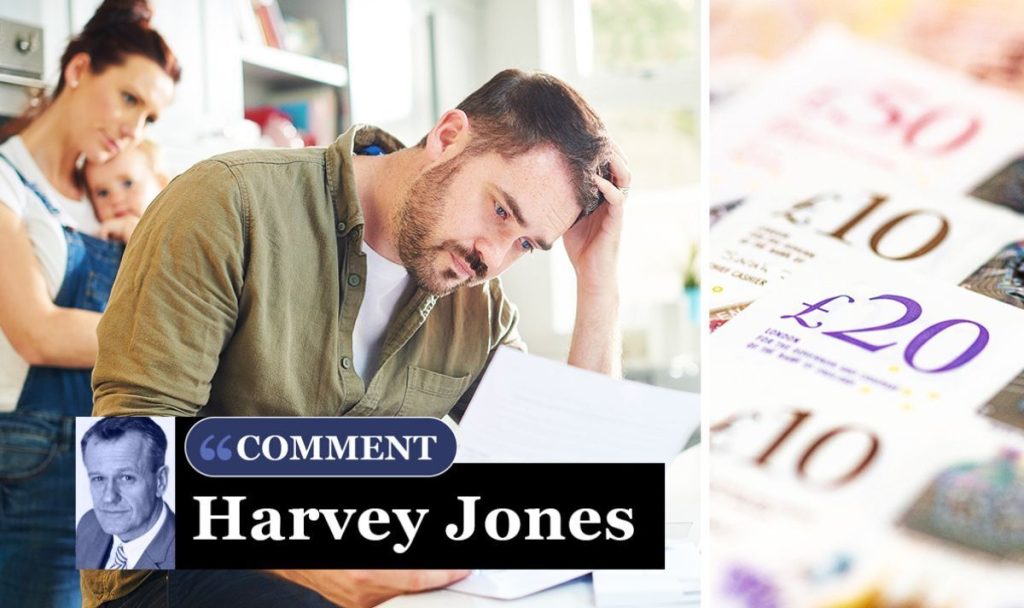
Everyone knows banks have been giving savers a rotten deal. New research shows they are ripping off their customers in a host of other ways, too, and it just gets worse and worse.
Last month, MPs accused the big banks of “profiteering” by failing to increase interest rates on savings accounts at the same speed as they have been hiking mortgages.
City watchdog the Financial Conduct Authority (FCA) has pledged to crack down unless banks pay loyal savers more.
The big banks will no doubt respond in their time-honoured way. By doing the absolute bare minimum they can get away with.
’Twas ever thus. I’ve been lambasting the banks for failing to treat loyal savers fairly for the best part of two decades, to zero effect.
New research confirms what I’ve always suspected. Banks are giving customers are much worse deal than they used to do.
Last Thursday the Bank of England hiked base rates to 5.25 percent, a level last seen 15 years ago, in February 2008. Yet back then, savers got a much better deal, according to new research from TotallyMoney.
In 2008, the best easy access account paid 6.5 percent. Today’s best deals pay a third less than that.
In February 2008, lender Abbey, now rebranded Santander, paid 6.5 percent on easy access, while Bradford & Bingley paid 6.40 percent and Alliance & Leicester 6.31 percent.
TotallyMoney’s research shows the best savers can get on easy access is 4.53 percent from Sainsbury’s Bank.
Easy access rates have picked up slightly this since then, with Aldermore, Paragon and Monument now paying 4.60 percent.
It’s a far cry from 2008, though.
TotallyMoney chief executive Alastair Douglas is rightly urging savers to take action. “Make sure your bank isn’t ripping you off with low interest rates”.
“Loyalty doesn’t pay, and unless you’ve recently moved your cash to a market-leading savings account, the chances are that you’re being short-changed.”
Worse, with inflation still high, leaving your money in a low interest account means it’s being quickly devalued, Douglas added.
READ MORE: This 6.06% savings account signals ‘peak interest rates’
Andrew Hagger, banking expert at MoneyComms, said 2008 were good times for savers, as banks competed to attract deposits in order to fund mortgage lending.
After the financial crisis, they were given access to cheap money cash via the government-backed Funding for Lending Scheme and its successors.
They no longer needed savers and abandoned them instead. FCA threats will do little to change that.
The big banks aren’t just ripping us off with savings rates, their overdraft rates have rocketed, too.
In February 2008, Santander (then called Abbey) charged 10.9 percent for authorised overdraft borrowing. Today, it charges 39.94 percent.
Barclays’ overdraft interest rates jumped from 15.6 percent to 35 percent over the same period.
Halifax, HSBC, Lloyds and Nationwide have all followed suit, synchronising their overdraft interest rates at 39.9 percent.
Douglas said one in five people have recently dipped into their overdraft, while almost one in 10 remain constantly overdrawn. “Banks are making big money out of people who are struggling to manage their finances.”
APRs on credit cards have also rocketed. In February 2008, Barclaycard charged 14.9 percent. Today, its APR is 24.9 percent. Santander, HSBC, NatWest, Tesco and Virgin have all made similar increases.
Douglas said this is hard to justify. “It’s hard to see how these practices fit into a more customer-focussed era where firms are expected to provide products and services that meet people’s needs and offer fair value.”
It’s yet another form of “shrinkflation”, which now afflicts so many parts of the UK economy.
Don’t rely on the FCA to turn this round. The only way you can fight back is by switching to a bank that does treat you fairly. Assuming you can find one.

 Latest Breaking News Online News Portal
Latest Breaking News Online News Portal




